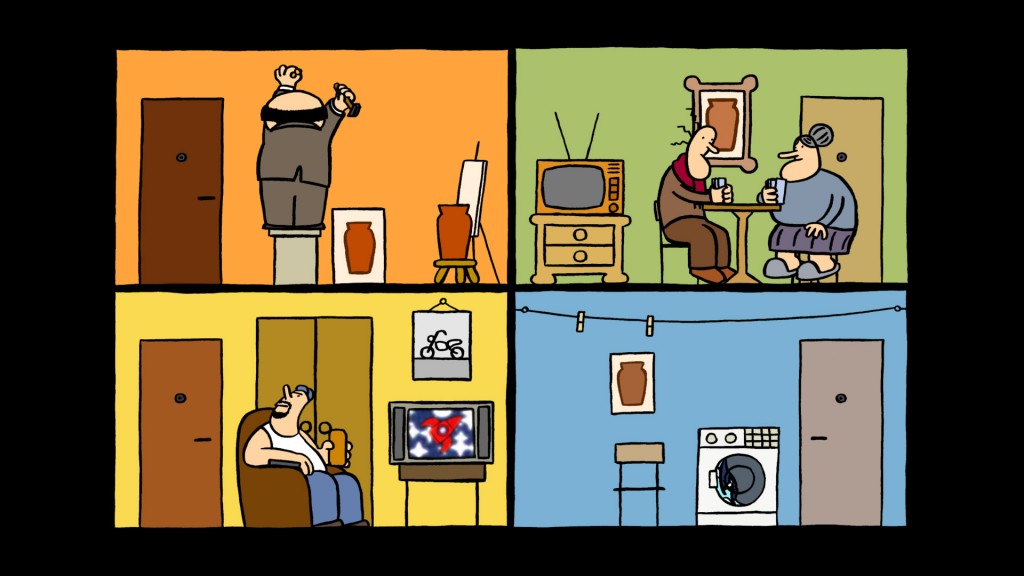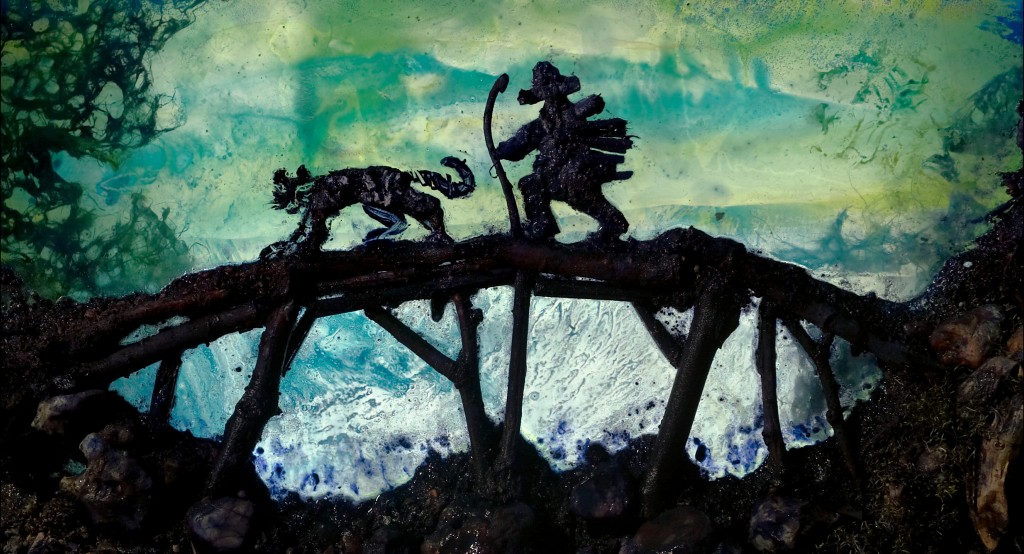Sat 2 Oct 2010
Animation Nation(s)
Posted by Ethan under Film Review, NYC Film Critic
Comments Off on Animation Nation(s)
Nine Nation Animation
**1/2
One of my favorite Oscar categories has always been Best Animated Short Film. I don’t get to see the nominees as often as I’d like to—even now that it’s gotten easier than ever to watch them thanks to the annual screenings organized by the good folks at Magnolia Pictures—but when I do, I’m always struck by the sheer range of narratives and artistic styles on display in these short productions that come from every corner of the globe.
Because while American animation houses like Pixar and DreamWorks have done an excellent job turning feature-length cartoons into exciting, dramatic spectacles that can stand toe-to-toe with most live-action Hollywood fare (it’s not for nothing that Toy Story 3 and How to Train Your Dragon remain among 2010’s most popular and best reviewed movies), some of the most innovative work in the medium is being done abroad and, in some cases, independently here at home. In addition to the Oscar-approved shorts, there are several traveling festivals—like Spike & Mike’s and The Animation Show—that tour the country each year, bringing a wide variety of international and domestic shorts to an enthusiastic fanbase of animation lovers.
In this tradition comes Nine Nation Animation, an 80-minute program of nine animated shorts from nine different countries, curated by The World According to Shorts, a Brooklyn-based program associated with the Brooklyn Academy of Music’s (that’s BAM to Brooklynites) cinema division, BAMcinématek. Unfortunately, Nine Nation Animation boasts one of the weaker line-ups I’ve seen in one of these omnibus presentations, which is surprising considering that several of the films picked up awards at major international festivals, including Cannes and Berlin. Out of the nine shorts included here, only four prove to be particularly memorable and only one of that group is a perfect marriage of form and content.
Perhaps the most visually striking of the bunch is Bamiyan, a French-produced short revolving around the legend of Xuanzang, the Chinese monk who discovered the now-destroyed Buddhist statues in Afghanistan in the 7th century AD. Employing a hand-painted style with lots of rich colors and swirling backgrounds, the film often resembles a Chinese wall painting come to life. Bamiyan is followed by Ireland’s Please Say Something, an equally inventive film that trades the latter’s painted quality for highly stylized computer animation that recalls a video game in the early stages of coding. Both shorts are beautiful to look at, but their narratives aren’t particularly engaging; Please Say Something is also marred by a pair of off-putting central characters, who start to grate four minutes in to its 10-minute runtime. On the other hand, story and character are the strongest part of the Swedish documentary-influenced film, Never Like the First Time! which illustrates the memories of four real people, who recount their first time having…well, you know. Their experiences range from comic, to frightening, to melancholy to charmingly wistful and the animation changes with each segment to reflect the tone of the memory. The last film in Nine Nation Animation’s line-up, Never Like The First Time’s deft fusion of documentary and animation ends the program on a strong note.
Still, the best short in the entire anthology is the Belgian entry, Flatlife, whose title perfectly sums up the film’s storyline (strange mishaps occur in four rooms in an apartment building) and visual style (2D hand drawings that recall classic newspaper comic strip). Director Jonas Geirnaert splits up the screen into four panels, each depicting one of the four apartments where the action occurs. The effect is similar to Mike Figgis’ 2000 feature TimeCode, with characters wandering from one panel to another as events spiral out of control. Witty, well animated and perfectly paced, Flatlife—which deservedly won a Jury Prize for Best Short Film at the Cannes Film Festival—provides a refreshing blast of cartoon silliness amidst more serious-minded fare.
Of the remaining five shorts, the heartfelt, but ultimately too syrupy British memoir Home Road Movies—in which director Robert Bradbrook reflects on the childhood road trips he took with his family—comes the closest to matching the quality of the top four. As for the rest, the Turkish film Average 40 Matches brings a box of matches to life via the magic of stop-motion animation but can’t think of anything interesting to do with them; Norway’s Deconstruction Workers has some amusing background gags, but the central characters are a bore; and I was entirely unmoved by Croatia’s experimental She Who Measures (although the film earns a few points for its striking use of those ubiquitous yellow happy faces) and the South African musical The Tale of How, which was further marred by a poorly mixed soundtrack that rendered much of the Gilbert and Sullivan-esque score unintelligible. It’s hard to strongly recommend an omnibus film that only has a 44% success rate, but if you’re an animation fan Nine Nation Animation does at least offer four films that take interesting and rewarding chances with the medium.
Nine Nation Animation opened for a week-long engagement at New York’s IFC Center on Wednesday, September 29th. Visit the film’s official website to learn about upcoming screenings.




No Responses to “ Animation Nation(s) ”
Sorry, comments for this entry are closed at this time.